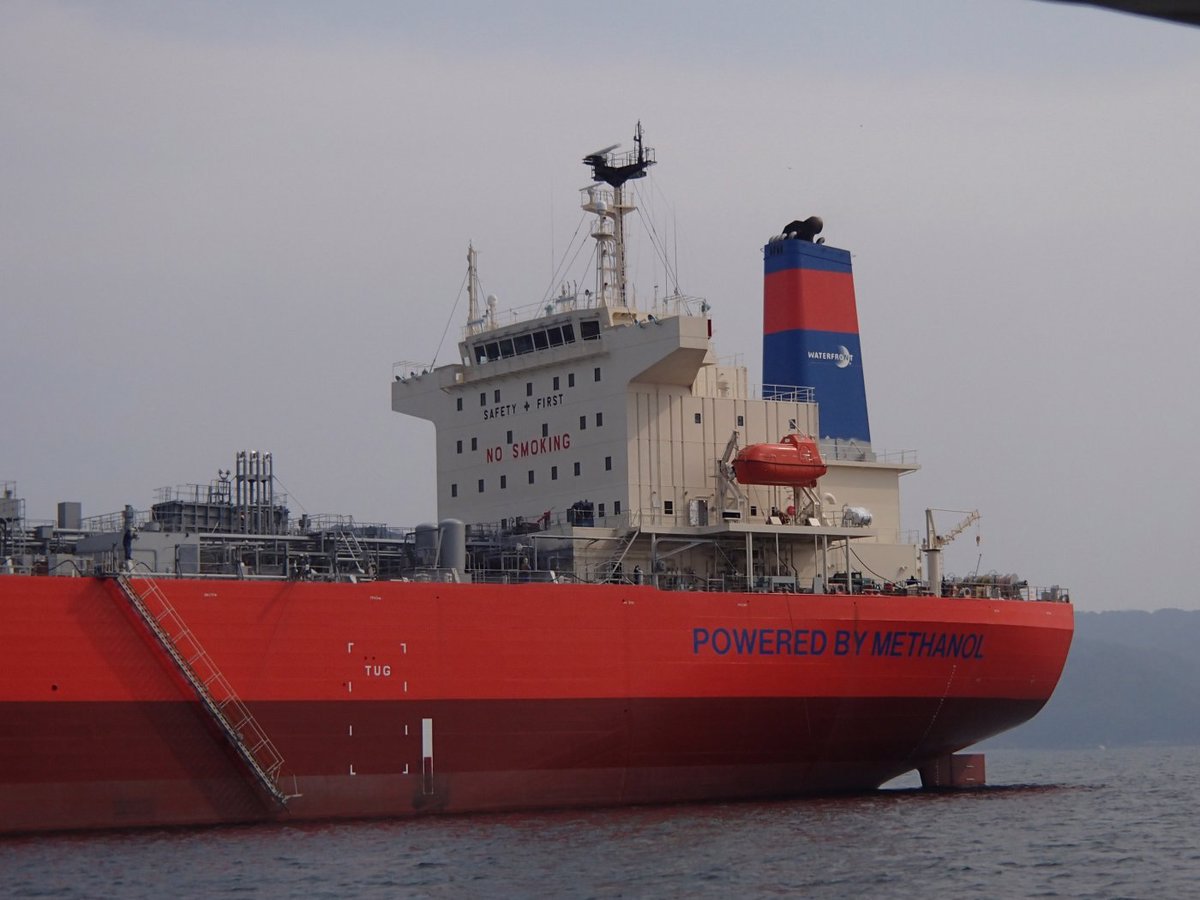Bunker delivery crews to be trained on methanol
IBIA has launched a methanol bunker training programme for crew operating bunker tankers and for bunker surveyors.
 PHOTO: A Waterfront Shipping vessel powered by methanol. Methanex
PHOTO: A Waterfront Shipping vessel powered by methanol. Methanex
It has partnered with Green Marine, which has developed a methanol training curriculum based on years of experience gained from crew working on dual-fuel methanol ships. It will also build on training gaps identified from a methanol bunker pilot in the Port of Singapore – which expects to see its first methanol bunker delivery this week.
The chief executive of Maritime and Port Authority of Singapore (MPA), Teo Eng Dih, said that preparations for ship-to-ship methanol bunkering involves monitoring different parameters that cover the “arrival of the bunker vessel to receiving vessel, connection and piping, bunkering operation, disconnection and purging, departure of vessels and crew and seafarer competency.”
Methanol is highly flammable, and toxic if it is inhaled. Chinese container line OOCL, which has placed an order for seven methanol-ready dual-fuel mega ships, has said that more than 400 crews will need extra training to operate these ships safely.
A recent study by DNV found that several hundred seafarers will need training on how to handle incoming alternative fuels with their own unique challenges.
The classification society modelled two scenarios for full shipping decarbonisation and how much crew training would be needed. In one of the scenarios, DNV estimated that by the 2040s, 310,000-750,000 seafarers will need training on alternative fuel technologies such as onboard consumption of methanol. In the other scenario, it found that 450,000 seafarers will need alternative fuels training by 2030, and a whooping 800,000 by 2035, to be able to scale alternative fuel consumption on ships.
IBIA and Green Marine’s upcoming training programme will have backing from the Methanol Institute.
“These are still early days for alternative fuels, making it a necessity to collaborate on fundamental elements for their safe and efficient integration with the maritime supply chain, bunkering and on-board handling,” the Methanol Institute’s chief operating officer Chris Chatterton said.
They have not said how many crews will get training, but the idea is to start the programme from next year in Singapore and subsequently expand it globally.
By Erik Hoffmann
Please get in touch with comments or additional info to news@engine.online






